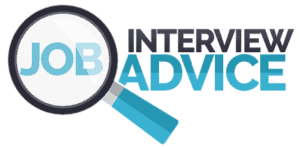After your job interview is over, there is always that last question that throws so many people for a loop: “Do you have any questions for me?”
It’s simple but often causes potential candidates to stumble. If you want to avoid that, you should learn about some good questions to ask your interviewer before you go in for that interview. So, to guide you through that process, the following discusses 30 examples of questions you can consider asking.
What Questions to Ask Your Interviewer?
1. What type of skills are you looking for?
This is a simple, yet beneficial question to ask. You are able to learn more about what they look for in prospective employees and focus on whether or not you have adequately presented your own skills in a positive light.
2. Do you have any concerns about my qualifications for the job?
A question such as this is a bit of a risk as not all interviewers prefer to disclose how they feel about you right after the interview. So, be sure to judge the situation appropriately, and if you feel you developed a good professional relationship, go for the question. It can paint a clear picture as to where you stand.
3. What is a typical workday like?
This question gives you a chance to discover details about the work environment.
4. Are there any days or times that are busier than others?
Asking this is beneficial to learning even more about the environment you may be joining, and it can ensure that those hectic rush hours don’t blindside you if you get the job.
5. What will my responsibilities be?
Even if this was touched on during the interview, it doesn’t hurt to gather more thorough details about each of your responsibilities. This is definitely among the top of good questions to ask your interviewer.
6. How have the responsibilities for this job evolved over the years?
A good answer to this question should be detailed enough to demonstrate that the position you are going for is one where you can readily grow in.
7. How exactly will I be trained?
As a more personal question, you can learn about the training process, were you to be hired. You may also learn about who does the training so you can know what to expect.
8. Are there other duties or tasks I may be asked to perform not related to my position? If so, will there be training for that as well?
In some jobs, there is a chance that you may be asked to do something not connected to your original position (e.g. applying for a stock position and being asked to work the cash register).
You might be required to look presentable or deal with clients even though it’s not in your job description. In such a case, it’s paramount that your dress code is on point for the interview .
.
9. Does the job promote workshops or seminars to encourage employees to keep developing their skills?
This can tell the interviewer that you are serious about growing professionally in the company and learning more about your job.
10. What is the most important task I can accomplish in the first 30 days?
Out of the many good questions to ask your interviewer, how much they expect you to do is important. The question can also help you delegate important and none-important tasks in the future.
11. How many work hours a week is expected of someone in my position?
Just about all jobs ask how many hours you are willing to work on your application, but a good question to bring up if the interviewer doesn’t is the standard hours a week previous or current employees work that perform the same duties you’re expected to.
12. Do you expect or allow overtime?
It’s a good idea to learn about the overtime situation at the job, more so if you are looking for a company with quality overtime hours and pay.
13. How do you promote advancement within the company?
Inquiries about your future are good questions to ask your interviewer. You can impress a potential employer by letting them know you’re looking to turn your job into a career.
14. What is the next step in the hiring process?
Let an interviewer know just how willing and ready you are to start working for the company. Many employers value this kind of attitude.
15. Can you describe the culture of the company?
Finding out the culture of the place you wish to work can help you realize if your interests and personality fits in well. Also, it is a great opportunity to discover more about how the interviewer feels about the current employees.
16. Can you talk about what employees seem to enjoy the most about working here?
More good questions to ask your interviewer to learn about the workplace environment deals with things that current employees speak highly of.
17. Do you know how many people I’ll be working with?
Continue to learn more about your future colleagues. This can help you understand the amount of work you’re personally responsible for in comparison to how much you are to complete as a group.
18. Is there anyone, in particular, I’d be working closely with?
Likewise, with question 18, this one teaches you about anyone who may be either a fellow colleague or a mentor that may help you adjust to your new job.
19. What type of challenges do people in my position usually face?
Not only will questions like this make you more aware about other employees, job politics, etc., but it can also be the perfect way to discuss how you have triumphed over difficulties in the past.
20. Are there any other important skills I should have to succeed in the job?
This question is another good way to speak about your skill level and indicate to the interviewer that you are willing to grow and learn with the company.
Pro tip! Ask all of these questions like it’s your right. You have to exude confidence – if you don’t think you belong, the interviewer won’t either. An interview is 70% acting, so practice your routine!
21. What values do the company believe in?
Probing about a company’s values can allow you to speak about your own, further personalizing yourself with the job, which are more good questions to ask your interviewer.
22. How long have you been with the company?
This may seem a touch intrusive, but many interviewers don’t mind a question like this. Discovering how long they have been with the company can speak volumes about how much they like working there in addition to touching on the overall job security the company offers.
23. Can you talk to me some more about who I will directly report to?
In many cases, the person that interviews you is not going to be your boss. If this is the case, then don’t be nervous about asking the interviewer about your potential boss.
24. How does this job approach leadership?
Good questions to ask your interviewer can relate to whether or not you’re expected to handle a lot of things on your own or if there is more personal, direct leadership in place.
25. Where do you see the company going in the next five years?
Joining a company that is not seeing any sort of growth is not a good idea. So, try to find out how secure the job really is.
26. How many employees have left the company within the past year?
A question such as this gives you an idea about a job’s turnaround. A company with a large turnaround may not have as much job security or room to advance.
27. How do you measure success in this position?
One vital aspect to learn about a company is how they measure success and what they deem to be a successful employee.
28. Do you feel as though it is easy to seek out and ask for help if needed?
The answer to this question can let you know right away if the job and upper management has an open-door policy, so to speak, for questions and concerns from employees.
29. What is a fitting starting date if I were to get hired for the job?
Although you may have indicated your requested starting date when you filled out the application, it doesn’t hurt to learn from your interviewer what date is the most ideal. The company may be ready for you to start sooner or later than expected.
30. How long does recruitment usually take?
This is a comfortable way to conclude the discussion. It tells the interviewer that you are ready for the job without being so demanding about it.
Smart Questions to Ask in a Job Interview
Before you go into your next job interview, you want to make sure you’re fully prepared. This means not only rehearsing your answers to common interview questions, but also preparing some questions of your own.
Asking the right questions can help you get a better sense of the role you’re interviewing for and the company’s culture and values. And, of course, it shows that you’re truly interested in the opportunity. So what are some good questions to ask your interviewer?
First, try to ask about the company’s history and how it has evolved over time. This will give you a better sense of its mission and values. You can also ask about the team you’ll be working with, and what their day-to-day experience is like.
Finally, be sure to ask about the company’s plans for the future – this will give you a sense of whether it’s a stable place to work, or if there’s potential for growth. By asking thoughtful questions, you can show that you’re serious about the opportunity and set yourself apart from other candidates.
Before heading to your interview ensure learning from job interview answers and questions list which we have compiled just to maximize your job interview success rate.
Wrap Up
Though there are many good questions to ask your interviewer, you don’t want to go overboard with them. Too many questions can make you seem overly rehearsed. Consider only asking, at most, two to three questions. You can show off your interest and knowledge about the company and build up a good back-and-forth talk with the interviewer.


Appreciate this post. Will try it out.|